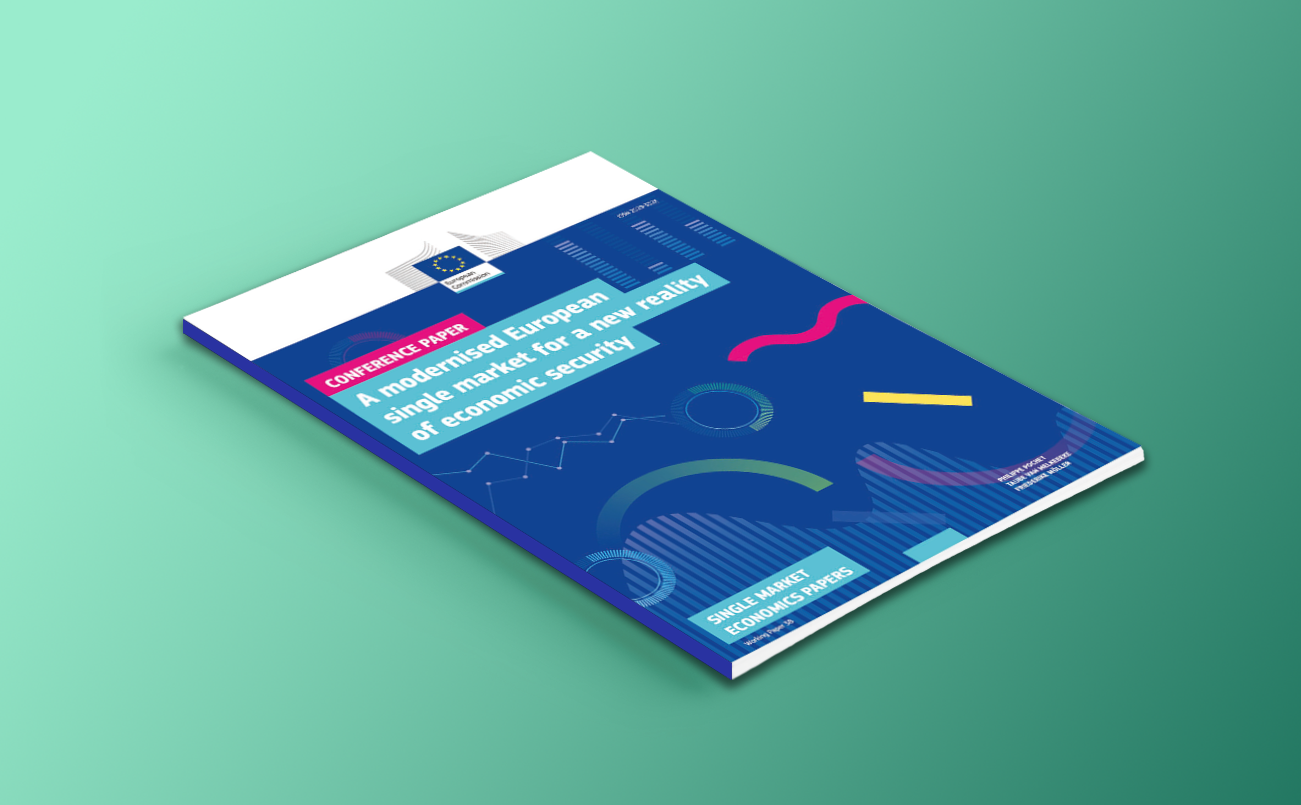About
This paper was published as part of the Single Market Economics Papers by the Directorate-General for Internal Market, Industry, Entrepreneurship and SMEs of the European Commission.
Time is of the essence in aligning European economic systems with both environmental and social goals. To achieve this, it is essential to leverage all available tools – the single market being the most potent instrument. However, unlocking its full potential requires the adoption of a new strategy based on a reformed sense of economic security.
The persistence of path dependency and a reflexive attachment to the status quo has left the single market ill-suited to meet the needs of its citizens. The 2025 Single Market strategy should be viewed as a starting point to overcome outdated frameworks and to reflect on the intentionality and construction of the single market.
This paper argues that the potential of the European single market in providing economic security within a dramatically changed context has been overlooked. It aims to fill the gaps in current understandings of economic security by developing an expanded framework that incorporates economic resilience and, more specifically, environmental and social security. Ultimately, it seeks to contribute to the current debate on reforming the single market by addressing both existing and emerging threats to the European economy.
Authors
- Philippe Pochet collaborates with GEF on the topics of welfare states, single market and the circular economy as a GEF fellow. He was Director of the Observatoire Social Européen (OSE) for over 15 years and then General Director of the European Trade Union Institute (ETUI) from 2008 to 2023. He is currently a Professor at the Catholic University of Louvain and a Visiting Professor at the College of Europe in Bruges. He is also an Affiliate Professor at the Sant’Anna School of Advanced Studies, Pisa.
- Taube Van Melkebeke is Head of Policy at the Green European Foundation (GEF). She leads the various Knowledge Communities of the Foundation. For more information, contact her at taube.vanmelkebeke@gef.eu.
- Friederike Möller is policy intern at the Green European Foundation.
This document has been prepared for the European Commission; however, it reflects the views only of the authors, and the European Commission is not liable for any consequence stemming from the reuse of this publication.
Format: 21 x 29.7cm
Number of pages: 22
Publication date: 2025, April 10
Type: Policy Briefs


